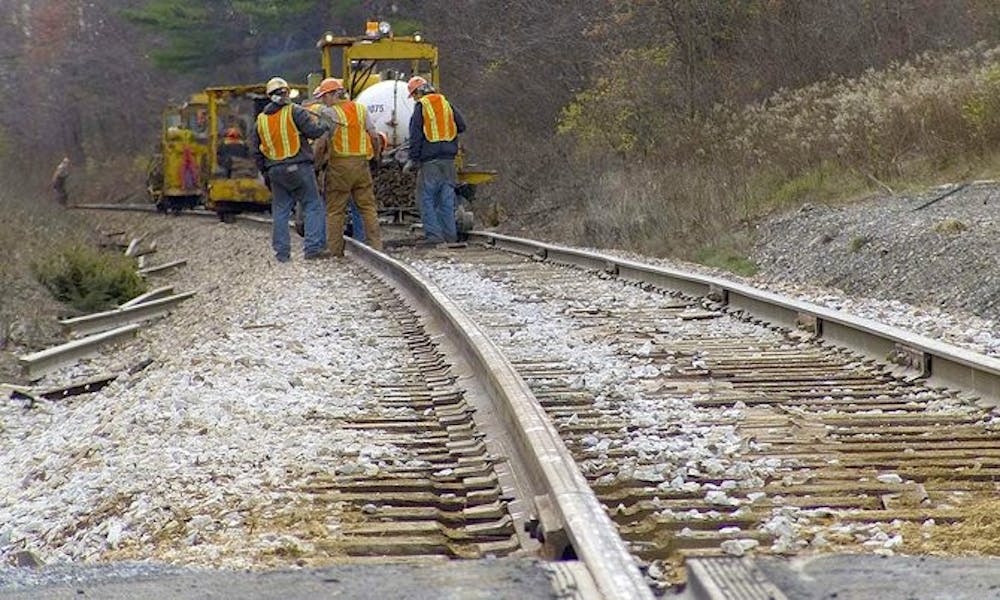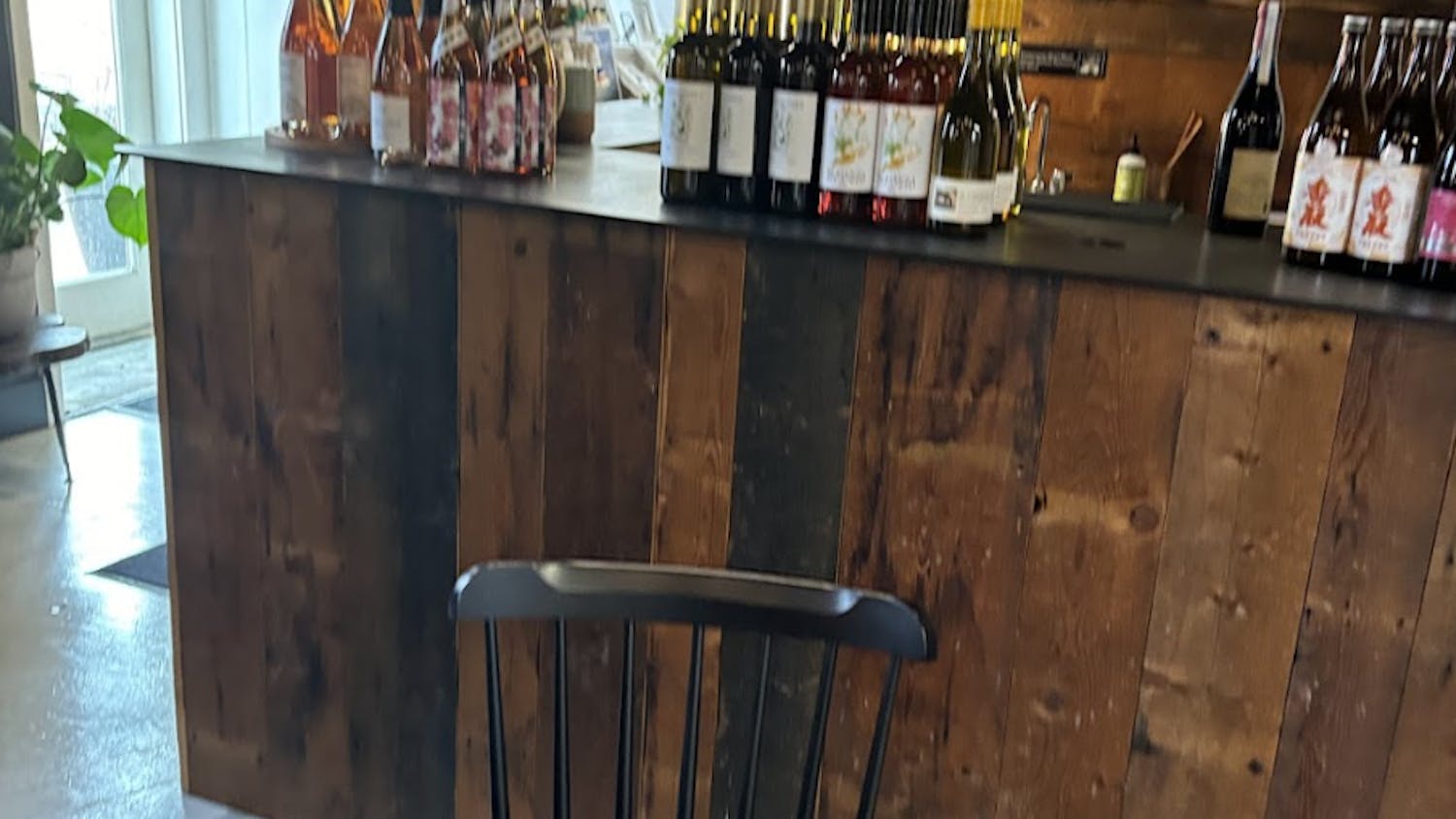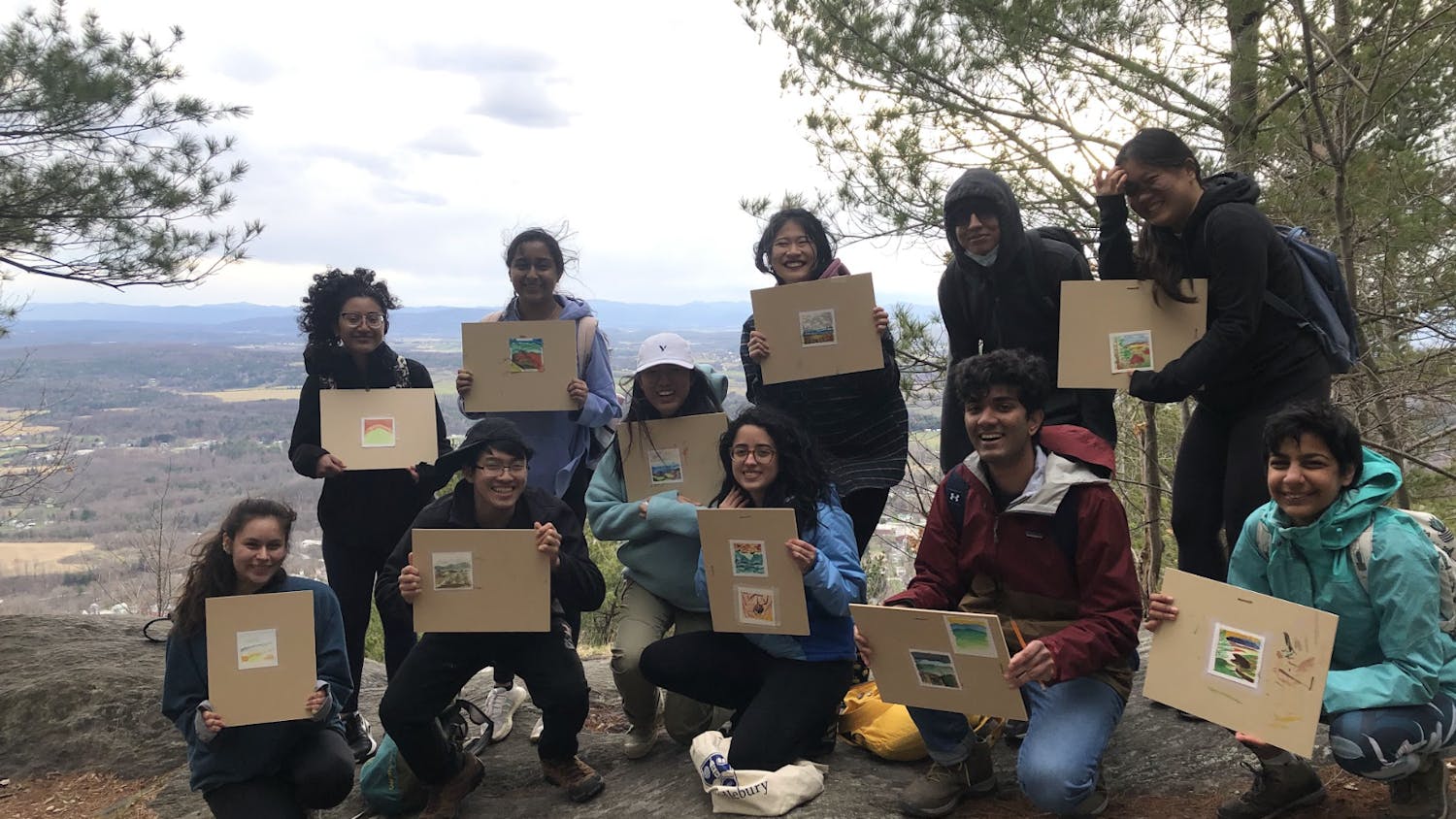On Jan. 31 and Feb. 4, a community forum met to talk over the proposed project to repair the railroad bridges in downtown Middlebury. The plan has drawn significant local opposition due to its anticipated effects on the downtown, as well as the potential for ecological damage to Otter Creek.
Construction is slated to begin this summer, primarily with federal funding.
Neighbors Together, a group formed from several existing bodies such as the Addison County Chamber of Commerce and the Better Middlebury Partnership, hosted the forums at St. Stephen’s Episcopal Church. About eighty people, most from the local community, attended the two sessions. The forums focused on the broad issues that will arise as a result of the project.
The church was a fitting location for the meeting, since it stands at the crux of the two bridges. It will feel the effects of prolonged construction most directly, both in terms of noise and of the potential for damage.
Eric Davis, Professor Emeritus of Political Science at the College, represents St. Stephen’s on the steering team. He posed the discussion’s central question as the following: “What are values, qualities, characteristics of Middlebury that need to be preserved and protected during the upcoming railroad bridge construction project?”
Out of this earnest discussion of the town’s values, three issues came to the fore: accessibility in the downtown area, the economic viability of downtown businesses and the town’s continuing role as a cultural and community hub.
If the project goes forward as proposed, the two overpasses could be closed for extended periods of time, severely limiting both vehicular and pedestrian access. This could hamper the ability of local businesses to make the profits they need to survive. As of now, no plan to compensate businesses for their lost sales has gained much traction.
Another concern raised during the forum was the noise level caused by constant construction. The current proposal calls for 20 hour workdays and heavy supply trains passing through regularly.
One suggestion from Neighbors Together was to allow for a flexible construction schedule to accommodate community events, like the various downtown festivals throughout the year and performances at the Town Hall Theater.
The major question remains, however, whether a modified project would be able to receive federal funding. The project is estimated to cost 40 million dollars.
Since the only plans that reduce the amount of construction would not meet national requirements for the bridges’ heights, a change to the plans could endanger federal funding.
Most residents do admit that the bridges are overdue for repairs, and some disruption to the downtown is inevitable. However, the size of the project is far from settled, and will directly determine the scope of the disturbance.
Neighbors Together plans to hold two more forums on Sunday, Feb. 21 at 3 p.m., and Thursday, Feb. 25 at 6 p.m., also at St. Stephen’s Church. In these sessions they hope to address more specific strategies for coping with the disruptions in order to protect Middlebury’s vibrant downtown. They will use the themes from the first two forums as starting points for their discussion.
Jack Desbois ’15, a recent graduate of the College and resident of Middlebury, would like to see Middlebury students get more involved with the initiative.
“The town is a really wonderful resource for college students,” he said, “and that would be a real shame for the College if that were to go away in a cloud of construction smoke.”
Desbois believes the College is an integral part of the community, and that students can play an active role in the continuing discussions about the town of Middlebury’s values.
Students will have the opportunity to have their voices heard at the forums in the coming weeks.
Community Forum In Middlebury Discusses Bridge Renovations

Comments



